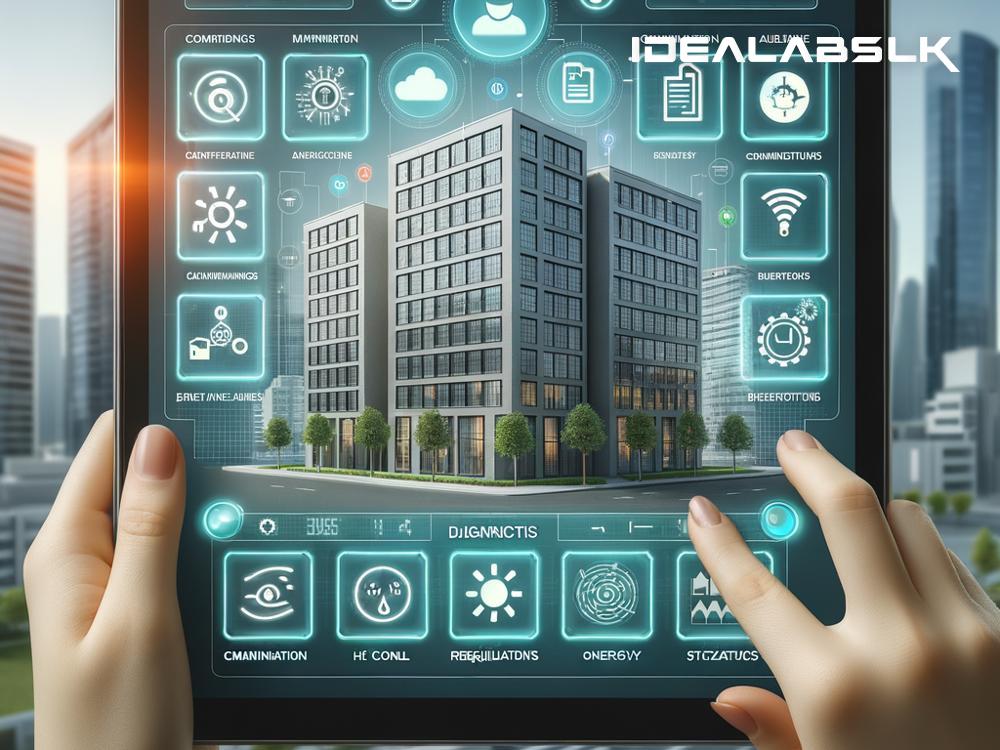How AI is Enhancing Property Management with Predictive Maintenance
In today’s fast-paced world, property management has evolved beyond just collecting rents and fixing broken fixtures. With the advent of artificial intelligence (AI), a new era of enhanced property management has emerged, notably through predictive maintenance. This shift is not just about leveraging technology for the sake of innovation; it's about revolutionizing how properties are maintained, enhancing efficiency, improving tenant satisfaction, and ultimately, saving money. Let’s dive into how AI is making waves in property management through predictive maintenance.
Understanding Predictive Maintenance
Predictive maintenance might sound complex, but it’s a straightforward concept. Traditionally, property maintenance has been reactive: something breaks, and it gets fixed. Predictive maintenance, on the other hand, is like a crystal ball that tells you what’s going to break before it actually does. This approach uses AI to analyze data from various sources, predict potential issues, and thereby prevent problems before they occur.
The Role of AI in Predictive Maintenance
AI is at the heart of transforming property management through predictive maintenance. But how? AI systems analyze vast amounts of data from sensors installed in various equipment and systems within a property. These sensors monitor everything from the temperature of a refrigerator to the humidity levels in a basement. Through this ongoing data analysis, AI can identify patterns and anomalies that suggest a potential problem.
For example, if an air conditioning unit shows signs of decreased efficiency, it might be due to a part that’s wearing out. AI can catch this early, allowing property managers to fix or replace the part before the entire unit breaks down, saving both time and money, and preventing discomfort for the tenants.
The Benefits of Predictive Maintenance in Property Management
The implementation of predictive maintenance powered by AI in property management brings several benefits:
-
Cost Savings: Predictive maintenance helps avoid the costs associated with emergency repairs, including after-hours service fees and the higher costs of rapid part replacement. Over time, this can lead to significant savings.
-
Efficiency: It streamlines the maintenance process. Instead of checking every unit or system regularly, property managers can focus on those that the AI predicts will need attention soon. This targeted approach means maintenance work is done more efficiently.
-
Tenant Satisfaction: Fewer breakdowns mean happier tenants. By ensuring that heating, plumbing, and other systems are running smoothly, tenants have a better living experience, which is beneficial for tenant retention.
-
Longevity of Equipment: Regular maintenance based on AI predictions can extend the life of equipment, as it ensures that all parts are working correctly and efficiently. This not only saves money on replacements but also contributes to a more sustainable operating model.
Real-World Applications
In real-world settings, AI-driven predictive maintenance is revolutionizing property management in various ways. For residential complexes, it might mean using AI to predict when the elevator is likely to fail, avoiding potential breakdowns during peak hours. In commercial buildings, it could involve analyzing the usage patterns of HVAC systems to optimize energy consumption and predict maintenance needs.
Additionally, some advanced systems are now capable of detecting water leaks within walls by monitoring humidity levels, preventing potential damage and mold growth. These instances illustrate just the tip of the iceberg when it comes to the potential of AI in enhancing property management through predictive maintenance.
Overcoming Challenges
While the benefits are clear, the path to integrating AI into property management isn’t without challenges. High initial costs, the need for technical expertise, and ensuring tenant privacy are some of the issues that property managers may face. However, with the rapid advancement in technology and increasing affordability of AI solutions, these challenges are becoming more manageable. Proper training and clear communication about how data is used can help address privacy concerns and build trust among tenants.
The Future is Now
As technology continues to advance, the role of AI in property management is only set to grow. Predictive maintenance is just the beginning. We are moving towards a future where AI not only predicts and prevents but also automatically schedules maintenance, selects the best contractors, and even negotiates prices.
In conclusion, the integration of AI into property management through predictive maintenance is not just a trend; it's a transformation that's enhancing efficiency, lowering costs, and improving tenant satisfaction. As we embrace this new era, the possibilities for what property management can achieve are expanding, paving the way for a smart, efficient, and more sustainable future.
Embracing AI in property management is not just about staying ahead in the technology game; it’s about reimagining the possibilities of maintaining properties in the most efficient, cost-effective, and tenant-friendly way possible.

